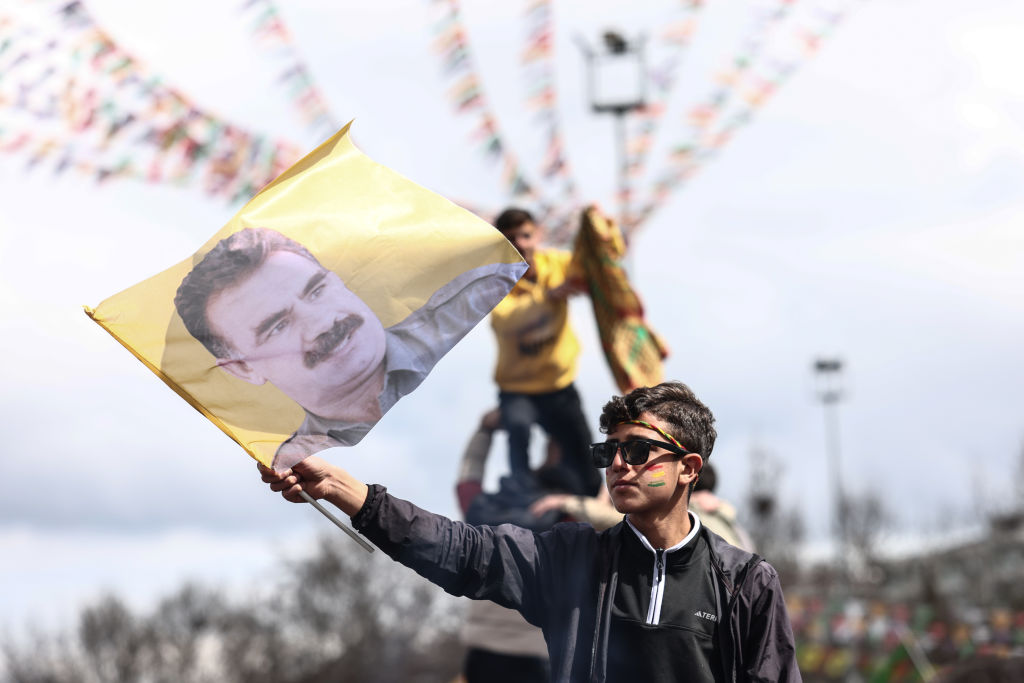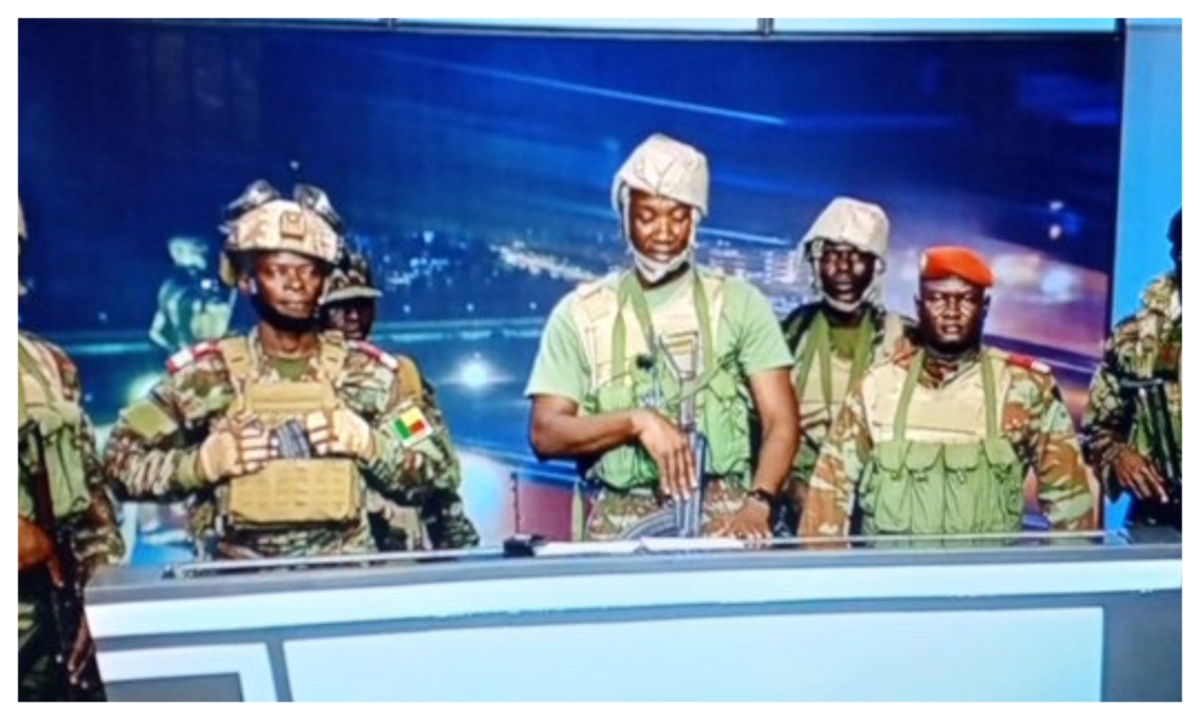Officers of Elite Russian Forces Train Chechens
Officers of Elite Russian Forces Train Chechens
Reports of clashes between government forces and militants in Chechnya are rare these days. However, the absence of such reports is not always due to an absence of clashes. Russia’s information policy with regard to Chechnya is pointedly positive and thus practically excludes the very possibility of clashes with the rebels. Therefore, a recent incident targeting Chechen police officers came as a big surprise. Two police officers who were searching for militants in Chechnya hit a mine. One died and the other was hospitalized. According to the scarce news reports about the explosion, the incident occurred during a special operation in a forested area near the village of Shalazhi in Urus-Martan district (https://www.kavkaz-uzel.ru/articles/234523/).
It became clear that news from Chechnya is being tightly filtered on November 14, when Russian media unexpectedly reported that a jet from Chechnya with wounded officers on board had made an emergency landing in the city of Voronezh (https://www.aif.ru/crime/1022515). The emergency landing in itself was not surprising, but the news of wounded servicemen being flown to Moscow from Chechnya was, given that there had been nothing in the news about clashes with the rebels. It turned out that there were six wounded servicemen on board the jet, two of them in critical condition, which meant that the clash had not been insignificant (https://rusnovosti.ru/news/290971/). The insurgency’s media reported that two police officers were wounded during a special operation near the village of Yandi in Chechnya’s Achkhoi-Martan, but they failed to provide information on where the other four officers were injured (https://kavkazcenter.com/russ/content/2013/11/14/101701.shtml).
A scandal involving a fistfight between two deputies from the ruling United Russia party served as another example of the Russian government’s peculiar informational policies. Adam Delimkhanov, an ethnic Chechen and a close associate of Ramzan Kadyrov, clashed with Alexei Zhuravlyov, a staunch Russian nationalist deputy, in the hallway of the Russian State Duma on December 3 (https://www.rosbalt.ru/main/2013/12/04/1207141.html). The fight was reportedly triggered by Zhuravlyov’s official inquiry about the construction of a memorial dedicated to the 19th century Chechen heroines who defended their village from the Russian army. No less interesting than the cause of the argument was the fact that a Chechen deputy beat up a Russian nationalist. According to Zhuravlyov, his Chechen counterpart asked him why he cast doubt on the legality of training being given to Chechen special forces by elite Russian special units, including the famous Alfa unit (https://www.silver.ru/news/61306/). “He started threatening me, saying that I am meddling in somebody’s affairs and that it will end badly,” Zhuravlyov said. “After I asked, ‘Isn’t Chechnya part of the Russian Federation?’ he hit me […] on the sly and then I tried to defend myself. My aides and his bodyguards ran up to us.” In the end, “a golden handgun fell off Adam Sultanovich—I do not know from where—and we decided to stop all actions,” Zhuravlyov said, adding that he currently “does not look very well.” His press secretary added that a friend of the deputy who was at the scene “most likely lost his teeth” (https://slon.ru/fast/russia/u-adama-sultanovicha-vypal-zolotoy-pistolet-i-my-reshili-prekratit-vse-deystviya-1028557.xhtml). Thus it appears that the Chechen deputy was most upset not about the memorial issue, but about Zhuravlyov’s inquiry to the Federal Security Service (FSB) regarding the training of the Chechen commandos.
In reality, Chechen TV often shows Chechen military and special services being drilled by instructors from Russia’s Alfa special unit. So for the Chechens themselves, the training of Chechen forces by Alfa was not a secret and a plausible reason for the deputy’s inquiries. For example, a program that aired on Chechen TV on November 29, showed Ramzan Kadyrov present at an evening drill in the mountains with servicemen from the Chechen special services and a Russian instructor (https://www.youtube.com/watch?v=64zjkNJoLa0).
The training camp for Chechen special forces is based in the village of Tsentoroi in Chechnya’s Kurchaloi district. This is no secret: the base is also quite frequently depicted on Chechen TV (https://www.youtube.com/watch?v=1oh-c6eUp0I#t=2323). Acting in the capacity of Ramzan Kadyrov’s aide on law enforcement issues, Daniil Martynov is the instructor at the camp (https://www.facebook.com/permalink.php?story_fbid=446793968766043&id=100003063305450). Martynov gave high praise to the group of future instructors.
Kadyrov remarked that if the republic had had such instructors during its difficult period in the past, the government forces would have suffered far fewer casualties. According to Kadyrov, the trainees were now prepared to carry out any task that was set before them (https://www.youtube.com/watch?v=XzAp6m6NWco&feature=share). Major Daniil Martynov is, in fact, the chief of the group at Directorate A of the Special Purpose Center of the FSB of the Russian Federation (a.k.a. Alfa) (https://www.apchr.ru/npa/head_orders/2013/77.pdf). Martynov provides military training for the Chechens for action in mountainous and forested areas. His trainees and the major himself were dressed in foreign (non-Russian) khaki uniform without markings of any particular government agency (https://maxpark.com/community/politic/content/2359032).
Given the background of this story, the beating of Deputy Zhuravlyov by the Chechen parliamentarian Adam Demilkhanov has no prospects for resolution in the State Duma (https://ria.ru/politics/20131204/981770727.html). The issue will be resolved at a higher level. Even Zhuravlyov’s wish to send an inquiry to FSB Director Alexander Bortnikov is unlikely to produce any consequences. Bortnikov has the vivid example of the untimely resignation of the head of the Investigative Committee in Chechnya, Sergei Bobrov, right before his eyes. Bobrov managed to stay in office for little more than a half year of his initial two-year contract term. Bobrov relied too much on the power of his boss, Investigative Committee Chairman Alexander Bastrykin, and challenged Ramzan Kadyrov. As a result, Bobrov not only stepped down from his position, but even prematurely retired (https://v102.ru/politics/42268.html). Thus, Bastrykin failed to protect his man in Chechnya. The FSB director is probably no better prepared than Bastrykin to challenge Kadyrov. This is a signal to all those who decide to act against Kadyrov that he is under the personal patronage of Russian President Vladimir Putin. Having such support, Kadyrov can be assured of protection against all his present and future challengers as long as Putin remains in office.


